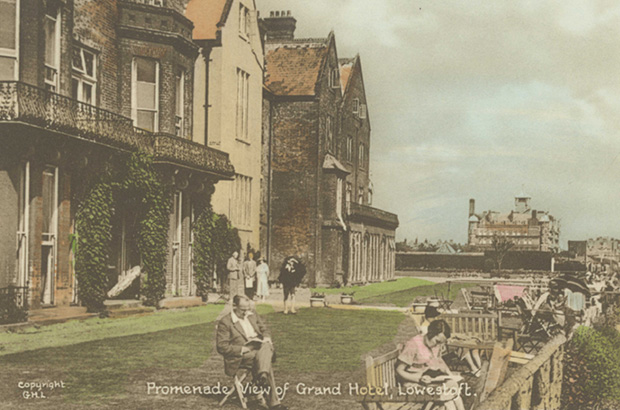The Centre for Environment, Fisheries and Aquaculture Science (Cefas) is one of the world’s longest-established marine research organisations.

Since 1902, Cefas has advised government on the sustainable use of marine living resources. This is to help support a healthy environment and a profitable fishing industry.
Throughout its history, Cefas has been at the forefront of marine science and produced some of the most influential papers in fisheries and oceanography. Extensive long-term datasets have helped achieve this, and support Cefas in its mission:
“To make a real difference to society as recognised leaders in marine and aquatic science”
Cefas’ origins go back to 1902 when the Marine Biological Association of the UK opened a small research station in Lowestoft, a major fishing port at that time,. The first seagoing surveys happened that year. By 1921 the station had become a laboratory with experimental facilities and our work had broadened to include inshore and freshwater species.
Biological studies expanded in the 1920s and 1930s, and in the 1940s to 1950s ground breaking theories of fishing and fish population dynamics cemented Lowestoft’s international reputation for leading fisheries science.
During the period 1964-82, we collected large amounts of fisheries data. This is unlikely to happen again in the future. But we continue to innovate in our sea-going research on our current research vessel, RV Endeavour.
Until recently, much of Cefas’ data collected during this pre- and early-digital era was not captured on our current electronic systems. This limited our ability to construct and interrogate the long-term time-series.
These time series are important in identifying and discriminating the consequences of marine environmental change. Also, physical specimens collected as a result of our extensive sampling programmes, most notably our internationally important otolith (fish “ear-stone”) collection, were often dispersed at different locations throughout the laboratory.
So we have placed high priority on cataloguing and digitising our historical data and archives in recent years. Also we've developed permanent data storage solutions to better understand the past of our marine environment.
As a result, we've enhanced the advice we are able to give towards current and ongoing policy questions. Our “data rescue” activities ensure that we have a data catalogue which is available, future-proof, and managed for future science needs.
We've summarised this work in a report called “Trawling Through Time”. It provides an overview of our 112 years of scientific excellence by outlining the wealth of historical data and biological material in Cefas’ archives. And we continue to apply innovative science, our current capabilities span:
- natural and social sciences
- modelling and technology
- oceanography and programme management
These are areas where legacy data can yield more insights.
Remember “Trawling Through Time” is not exhaustive. But highlights the breadth of our legacy data – realising that these represent “a major national asset” that is “being put to productive use in establishing long-term trends” (Cefas Science Review 2012).
For more information about this report, please get in touch by either signing up to email alerts from this blog or emailing us.
You can also follow us on twitter @CefasGovUK.